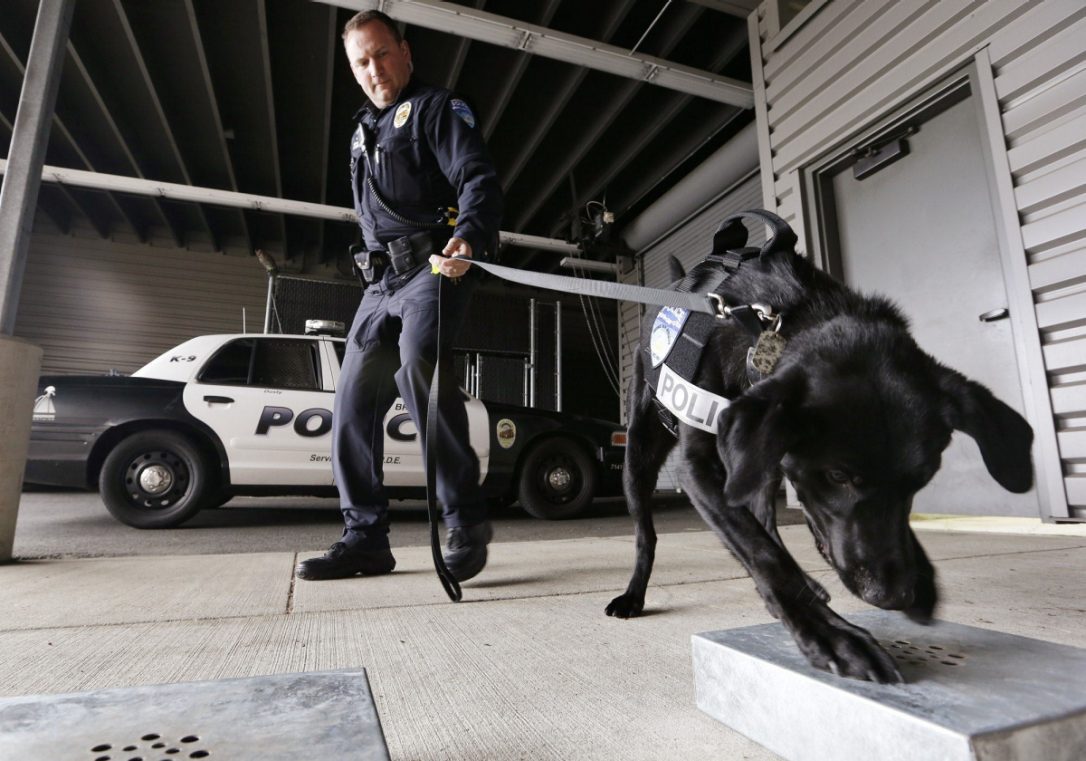The newest drug-sniffing dog on the police force in Bremerton, near Seattle, is one of a few police dogs in Washington state that are not trained to point out pot during searches. Other police departments are considering or in the midst of re-training their dogs to ignore pot as well, part of the new reality in a state where voters last fall legalized marijuana use.
When Dusty, a 19-month-old black Labrador, walked past a pipe full of marijuana during a recent police search of a house, he was doing exactly what his handler hoped.
The newest drug-sniffing dog on the police force in Bremerton, near Seattle, is one of a few police dogs in Washington state that are not trained to point out pot during searches. Other police departments are considering or in the midst of re-training their dogs to ignore pot as well, part of the new reality in a state where voters last fall legalized marijuana use.
“We wanted to train our dog on what was truly illegal substances, that would be heroine, methamphetamine and cocaine,” said Dusty’s handler, Officer Duke Roessel, who added that Dusty nabbed five pounds of meth during that recent search.
Police departments in Bremerton, Bellevue and Seattle, as well as the Washington State Patrol, have either put the dogs through pot desensitization training or plan not to train them for marijuana detection.
The law decriminalized possession of up to an ounce of the drug for individuals over 21 years old. It also barred the distribution and growth of marijuana outside the state-approved system.
Police say that having a K-9 unit that doesn’t alert to pot will lessen challenges to obtaining search warrants because the dog won’t be pointing out possible legal amounts of the drug. Traditionally, dogs are trained to alert on the smell of marijuana, heroin, crack cocaine, methamphetamine and cocaine. They can’t tell which one it is or how much of each there is.
The group instructed officers to point out that the dog was trained to smell pot and how that is relevant to other information when they seek a warrant, and that a “narcotics-trained canine’s alert will still be relevant to the probable cause equation.”
credit:420intel.com

